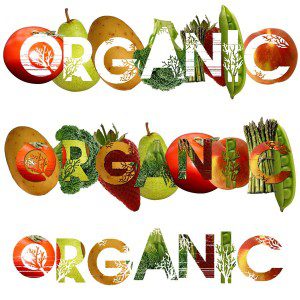Contributing Writer for Wake Up World
While it’s generally agreed in the natural health arena that organically produced fare is superior in safety compared to crops that utilize GMOs or chemical pesticides, the fact that it’s more nutritious might be overlooked by consumers. Conventional growers insist there isn’t a substantial difference between the two, yet several studies have found otherwise.
The science behind nutrient rich organic edibles
In the battle between conventional versus organic, research has shown the latter to be the victor with higher levels of vitamins and minerals as well as conjugated linoleic acid (CLA) and omega-3 fats.
Nutritional profile of organic compared to conventional crops
[pro_ad_display_adzone id=”110028″]
After reviewing 41 published studies examining the nutritional content of conventional and organically grown crops, certified nutrition specialist Virginia Worthington discovered organic food rated significantly higher. Findings include greater levels of vitamin C (27 percent), iron (21.1 percent), magnesium (29.3 percent) and phosphorus (13.6 percent). She also notes that organic crops had lower nitrates and heavy metal contamination. Worthington’s results can be found in The Journal of Alternative and Complementary Medicine.
Likewise, a study led by Alyson Mitchell at the University of California-Davis found free radical scavenging flavonoids were notably higher in organic tomatoes. Over the course of ten years, organically produced tomatoes were compared to their conventional counterpart. The organic fruit was shown to contain between 79 and 97 percent more flavonoid, aglycones, quercetin and kaempferol than conventionally grown tomatoes.
Variance in milk fatty acids between organic and conventional farming practices
A study in the Journal of Dairy Research investigated the chemical composition of milk sourced from conventional and organic dairy sheep and goats in Greece. One hundred and sixty two milk samples were taken over three months. Results showed fat content was lower in the organic milk compared to conventional. Additionally, the researchers discovered:
Milk from organic sheep had higher content in MUFA, PUFA, alpha-LNA, cis-9, trans-11 CLA, and omega-3 FA, whereas in milk from organic goats alpha-LNA and omega-3 FA content was higher than that in conventional one. These differences are, mainly, attributed to different feeding practices used by the two production systems.
According to the study, organic milk has a greater nutritional value (due to its fatty acid profile) compared to conventional milk when “produced under the farming conditions practiced in Greece.”
Similar results were found with cow’s milk. A team of researchers at the Institute of Food Science and Nutrition in Piacenza, Italy evaluated the fat composition of organic bulk milk as well as conventional. Once again, organically produced milk had higher levels of CLA. “The animal diet appears to be the factor which has the highest effect on the CLA concentration in milk and milk products and an organic diet based on fresh or dried forage, that is rich in CLA precursory fatty acids, may improve the yield of fatty acids with beneficial effects on health.”
Sources for this article include:
http://science.naturalnews.com
http://science.naturalnews.com
“Nutritional Quality of Organic Versus Conventional Fruits, Vegetables, and Grains,” by Virginia Worthington, The Journal of Alternative and Complementary Medicine, Vol. 7, No. 2, 2001 (pp. 161-173)
Previous articles by Carolanne:
- Feeling Physically & Mentally Overwhelmed? Try Ashwagandha, a Wonder Herb for Anxiety, Stress & Toxic Overload
- Kick the Caffeine Habit and Feel Better Quick with these Natural Alternatives
- Cherries a Superfood? Research Confirms this Well-Known Fruit Tackles Cancer, Insomnia, High Blood Pressure & Gout
- Warning: Genetically Modified “Agent Orange Corn” Coming Soon to a Plate Near You
- Inspire Physical, Emotional and Spiritual Transformation with Holotropic Breathwork
- Top 10 Food Frauds: Formaldehyde, Plastic, Melamine & Caustic Soda Found in Common Foods
- Autistic Boy With Higher IQ Than Einstein Discovers Gift After Removal From State-Run Therapy
[pro_ad_display_adzone id=”110025″]
Please note: this article was first published on Natural News.
[pro_ad_display_adzone id=”110027″]







